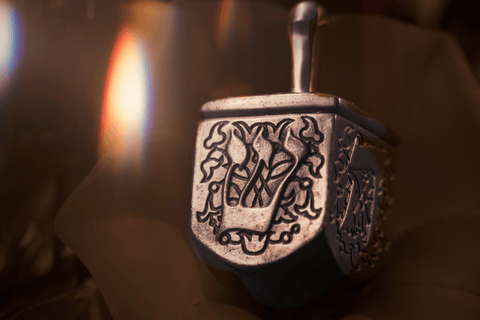It’s somehow already August and you find yourself scrolling on social media and see an almost annual reminder to not schedule meetings on Rosh Hashanah and Yom Kippur. You scratch your head, exit the tab, and look up “high holidays 2024”. You find out that the high holidays will be here in no time at all. You begin to panic over all the things you must do to prepare for the new year. Will the honey cakes be made? Will I have time to apologize to all those that I have wronged?
Well, we can help with that.
Below is a list of all the major upcoming Jewish holidays to help ease any uncertainty or yes, even anxiety.
Rosh Hashanah (September 15 - 17, 2023): Translating to Head of the year, Rosh Hashanah is the spiritual new year for the Jewish people. The holiday is celebrated by reflecting on the past year, apologizing for misdeeds, and eating sweets.
Yom Kippur (September 24 - 25, 2023): The most important day to the Jewish people, Yom Kippur allows us to move forward from our past mistakes. It is traditional for those above the age of 13 to fast if they are able. This is done so that the individuals may better focus on their prayers and conversations with the divine.
Sukkot (September 29 - October 6, 2023): One of three harvest festivals, Sukkot is celebrated to remember our people’s time in the desert. During Sukkot we build models of the little booths, Sukkahs, that the Israelites lived in while traveling through the desert. It is a mitzvah, commandment, to eat a meal in the Sukkah, sleep in there, and to revel in joy under its sparsely covered roof.
Simchat Torah (October 8, 2023): Simchat Torah celebrates the end and the beginning of the Torah. Congregations across the world celebrate through revelrous dancing, singing, and merriment.
Chanukah (December 7 - 15, 2023): The holiday of Chanukah, while often seen purely as the Jewish alternative to Christmas, is a celebration of all things oil and all forms of light. The holiday commemorates the victory of the Maccabees, a small underprepared army, against the Assyrian Greeks. Through this victory the Maccabees were also able to reinstate many practices that had been outlawed including lighting the holy menorah in the Temple. While there was only sufficient oil for one night, the lights never weaned. It is in these unlikely events that we see the miracle of Chanukah.
Tu B'shvat (January 25, 2024): The Holiday of Tu B'shvat is the birthday, or new year, of the trees. Trees are very important to the Jewish people and are given their due on this fabulous holiday. People celebrate this holiday by planting new trees and eating the seven species of Israel: figs, grapes, olives, wheat, barley, pomegranates, and dates.
Purim (March 23 - 24, 2024): Purim celebrates the story of the Megillah. The Megillah is a scroll containing the book of esther. In this story Esther, the newly appointed Queen of Shushan, saves the Jewish people from her husband’s, the king’s, wicked advisor, Haman, with the help of her uncle Mordechai. The holiday is celebrated through retelling the story, sharing gift baskets, Mishloach Manot, eating Hamentashen, and reveling in Haman’s suffering.
Passover (April 22 - 30, 2024): Passover retells the story of the Jews exodus from Egypt. In the retelling of our own bondage we recognize that our liberation as a people is not complete until we live in a world where all people can be free. Passover is celebrated in many ways but the most important is not eating foods that rise for the duration of the holiday and replacing them with Matzah based products and versions.
Lag B’Omer (May 26, 2024): A generally joyous day, Lag B’omer is often celebrated with bonfires and time outside in nature. The holiday commemorates the yahrzeit, or anniversary of passing, of Rabbi Simon bar Yochai and the end of the plague that decimated Rabbi Akiva’s students.
Shavuot (June 11 - 13, 2024): Shavuot is a holiday in which we commemorate receiving the Torah from Mount Sinai as well as the harvests of ancient Israel. Shavuot is celebrated by studying the Torah all day and eating lots of dairy.
* * *
In need of gifts for the holidays? Consider supporting a small, Jewish-owned business and shopping bubuleh this year.


